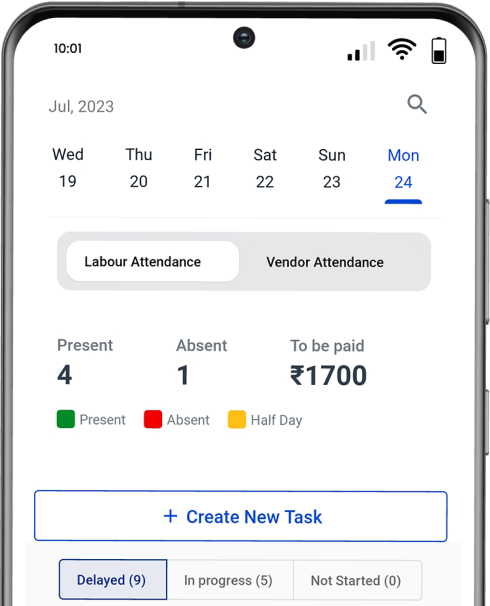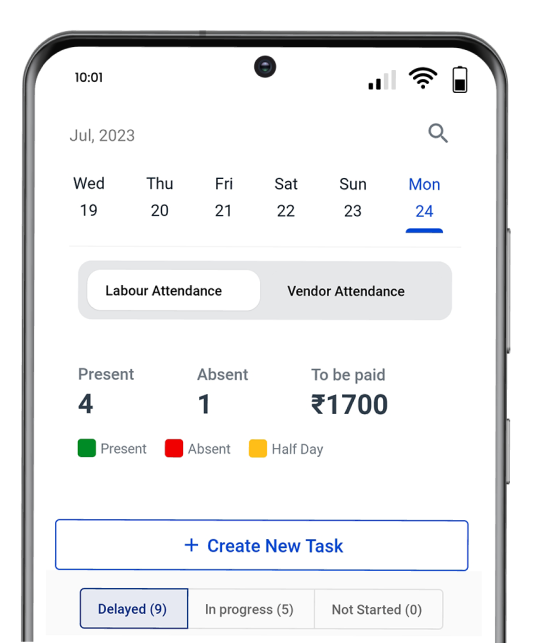8 ways to digitally transform your construction business
-
Kumar Abhishek Anand
- October 23, 2023

Although the construction industry is known for being resistant to digital technology, it is experiencing a wave of digital transformation. Forward-looking construction companies are driving industry change by using innovative tools and enlisting technology partners to work faster and better. The process of initiating such a transformation can seem daunting.
Digital transformation, in short, is the implementation of technology to modernise, optimise and digitise processes. This refers to implementing digital tools to improve communication and contract management workflows, increase safety, and complete work more quickly. Innovating construction companies are using tools to improve reporting and allow employees to log in with their smartphones. They can also stream safety videos and leverage their tech stack during bidding.
Why focus on digital transformation?
The secret to growth and the revenue generator for necessities well-digitised in the construction sector has been called digitisation.
McKinsey research has shown that the top ten per cent of companies that generate the most digital revenue are responsible for as much as 80 per cent of the digital revenue generated by their sector.
It notes that “superstars” businesses have committed significant resources to digitalisation in investing and developing a workforce. The investment is paying off. Business leaders see a positive correlation between digitisation and profitability.
This trend should be taken into consideration by construction firms – Digitise quickly. Rapid digitisation yields amazing results. In a rapidly becoming digitalised market, construction companies must join the digitalisation movement. Businesses need to accelerate their digital transformation efforts to succeed in the construction industry and stay competitive.
8 Ways to transform your construction business
Here are 8 ways with which you can digital transform your construction business:
1. Digital documentation
Construction projects require a steady flow of complex, large documents. Digital documentation is better than manual methods (email/pen and paper) and allows for greater visibility and flow throughout the value chain.
2. Mobile-first tools
Remote sites are often used for construction projects, making it difficult to use digital technology. The sites may also have limited internet access.
Construction workers can access project data on a mobile device using the app. They can also fill out forms offline by using mobile software.
3. Process automation
Construction firms use many processes. These processes can be digitalised to increase productivity and keep businesses compliant with industry regulations and internal governance. Construction firms can automate their processes to speed up the process and make savings throughout the project’s lifecycle.
4. Software for data analysis
A wealth of data will be generated over the project’s lifecycle. These data will include cost estimates, design models, and process insights.
A connected data repository combines project data into one central environment, giving business leaders a complete picture of their operations.
5. Safety of workers as a main focus.
The new workflow software makes managing projects easier and provides employees safety. Workers can quickly review and complete on-site digital safety surveys, report safety hazards and stream safety videos.
The ability to track and log safety inspections in real time makes it easier for construction sites to respond quickly and make them safer. Documentation is also more thorough and precise.
6. Operational efficiency improved
Digital transformation can be costly. Construction companies depend on huge amounts of data. An analogue system could have the information spread across many spreadsheets or servers. This can lead to inefficient and time-consuming processes. Implementing new systems can save time and money over the long term by improving operational efficiency.
A central, data-driven cloud system is a key feature of construction companies. It allows all members to access the same information and data. Cloud-based software makes manual tasks easier, saves time for workers on site, and allows you to concentrate on upcoming bids or projects.
7. BIM (Building information modelling)
BIM technology is rapidly becoming a standard in the construction industry. It connects a fragmented value stream and creates visibility throughout the construction lifecycle by connecting project data, teams and workflows.
8. Refocus project baselines
A project’s success depends on its ability to plan its construction timeline accurately. Digital transformation can make this process easier. By using technology to update scheduling metrics as the project progresses, technology can help you map out the best path to completion.
This laborious task can be simplified, resulting in more accurate timeline projections for owners and clients and easier identification of potential risks and challenges. Automated monthly reports help to prevent unexpected challenges and create a safer environment for your employees.
Share
Kumar is a digital content professional with more than 2 years of experience in Blog writing, copywriting and scripting. His passion lies in the art of creating convincing content that plays a major role in converting leads for SAAS businesses.












